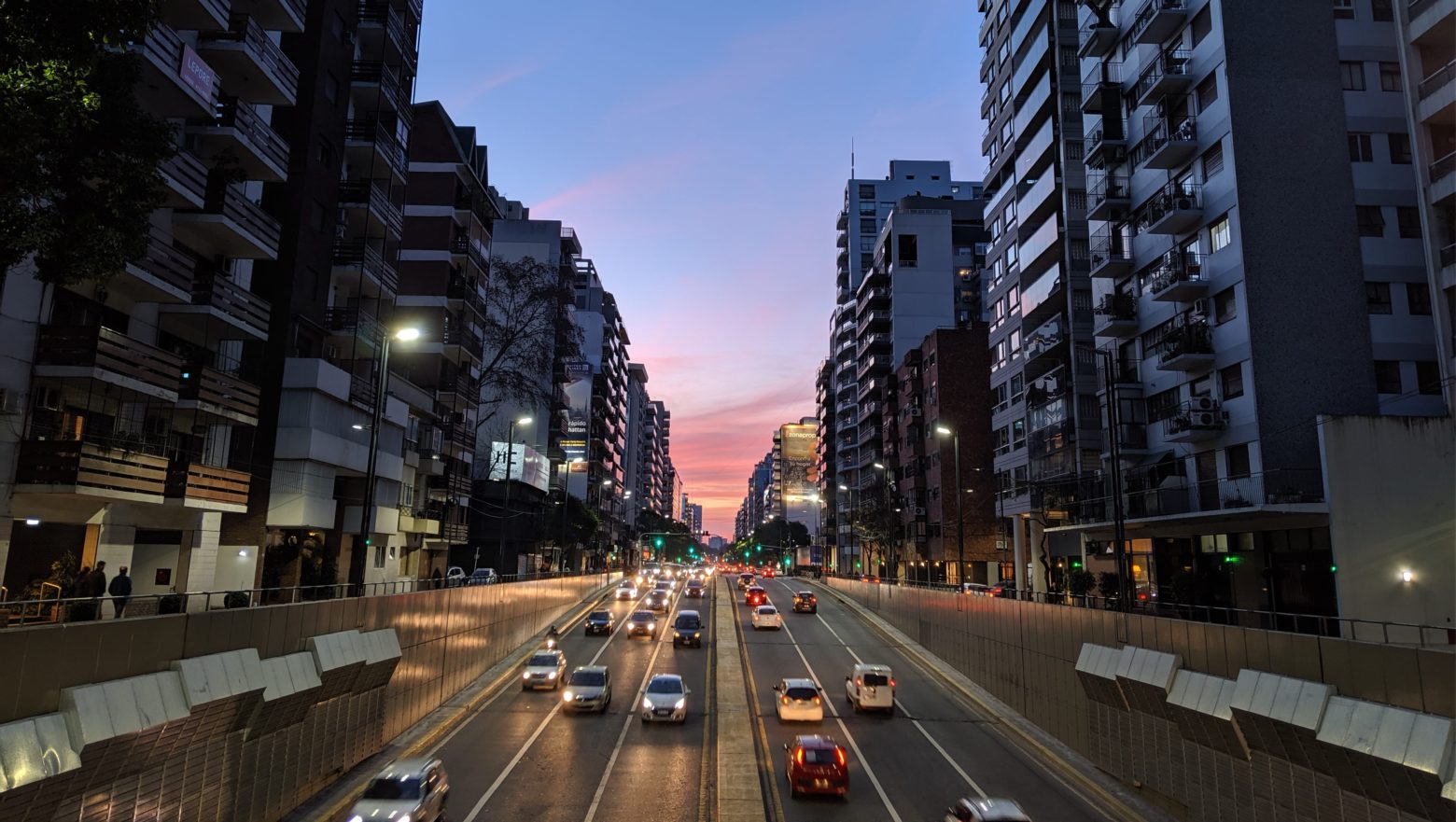In my experience, one of the biggest misconceptions about living in a foreign country is that you’ll magically become fluent in the language. Sure, you’ll definitely pick things up on a day-to-day basis and be able to navigate around stores and restaurants more easily over time. But unless you’re living and working with people in that language every day, it can be harder than it seems. So when we decided to come to Argentina, I figured I would have to make an effort to practice.
Sure enough, once I finished a daily, month-long Spanish course that I took in April, I quickly realized that I could go days at a time barely speaking Spanish. After all, I freelance write from home and speak with Justin in English. More Spanish classes, at that moment, were out of the question because they are expensive. Besides, at that point I didn’t really want more classes. Classes are good to learn and review grammar, but the hard part is actually using it in everyday life and having conversations with people in Spanish.
So, I’ve started having language exchanges: Meeting up with native Spanish speakers who want to practice their English, so we speak together in both languages and both get to practice.

Getting Social at Language Exchange Events
It all started with Mundo Lingo, a group that holds free evening language exchange events at bars. When you go to the event, you get flag stickers for the country where you’re from (to represent the language that you speak) and flags to represent the language you want to practice. It’s pretty casual and you just drink and talk to people. Mundo Lingo actually has events in other cities all over the world, but it started in Buenos Aires. There are also several other groups here that hold similar events, so it’s a fairly popular thing.
In May, Justin and I went to our first event…and we were spectacularly awkward! We just stood around until more outgoing people came up to us. In the end though, this strategy worked. We met people from all over South America, and some from the U.S. and Europe too. There are also Mundo Lingo “ambassadors” there who facilitate conversations, which is helpful.
Language Struggles
Obviously, speaking another language is difficult. You just have to get used to the idea that on a daily basis, you’ll probably say things wrong, people might look at you like you’re crazy and it might be awkward—but that’s OK. I’m also a fan of the “smile, nod and just act like you understand” strategy. That’s why getting together with people at language exchanges is helpful. You can ask people if you’re saying things right and take the time to correct what you say.
On the other hand, talking to people in your own language who aren’t native speakers, even if they speak it pretty well, can bring its own interesting set of challenges. (I’m sure anyone who’s spoken to me in Spanish will agree!) It really makes you conscious of how you talk, like your speed and the words you use (like not using slang). Of course it depends on how advanced the person’s language level is, but generally, you have to think about your sentences before you say them and about how to say them more articulately. Also, my favorite thing is when somebody asks you how to say something in English, and you can’t think of the word (even though you know what they’re talking about), which happens more often than you’d think!
So all of this is to say that Mundo Lingo events are definitely different than your average night out, but a good way to learn and socialize at the same time. Overall, it’s not something I could do every week, but Justin and I did end up going to a second event about a month later.
Practicing One-on-One
After the first Mundo Lingo event, I decided that trying to meet up with people one-on-one to practice Spanish was more my speed. Through Mundo Lingo, I’ve been able to connect with people to meet up with individually.
I try to meet up with two or three people per week. Usually, we get together for coffee for at least a couple hours, and we just have a normal conversation, speaking half the time in Spanish and half in English. We can correct each other if we say something wrong, and ask questions if we have them. It’s been a great way to practice my Spanish. But it had another unintended benefit: Now that I’ve met up with some people multiple times, it’s helped me make friends here. It definitely puts me out of my comfort zone, but I’d recommend for anyone in a similar situation who wants to practice another language.
Aside from my language exchanges, I’ve also found that pursuing other hobbies and interests here is a great way for me to not only to have fun, but to practice my Spanish and meet people too. I’ve been horseback riding (there are three barns within a 20-minute walk of my apartment—which is amazing when you consider I had to drive almost an hour in DC to ride). I’ve visited a couple animal sanctuaries. Last but not least, I’ve been taking tango classes. (Yes, Justin has been coming with me, and no, I don’t have any videos, sorry!) But I’ll get more into all these in another post!
